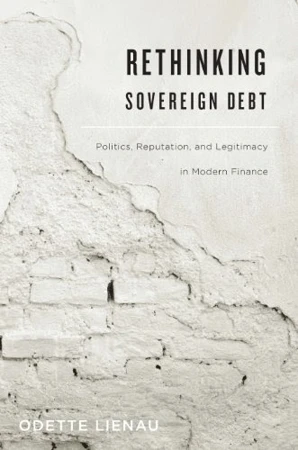Rethinking Sovereign Debt – Politics, Reputation, and Legitimacy in Modern Finance

Blurb
Why do we think that sovereign debt must be repaid--even after a major regime change--in order to maintain country creditworthiness? In a fascinating and highly original book, Odette Lienau argues that this conventional wisdom is overly simplistic and in some respects entirely wrong.Book summary
Using cases and institutional analysis drawn from across the last century--from the Soviet repudiation of tsarist loans to Iraq's debt restructuring after the fall of Saddam Hussein--Lienau challenges what she calls the norm of debt continuity, and contends that its underlying assumptions of political neutrality, creditor uniformity, and historical constancy all fall away upon closer inspection. Through a sophisticated account of the modern sovereign debt regime, the book asserts that debt continuity is not essential for functioning international capital markets, and demonstrates how it relies on ideas of absolutist government that have come under fire over the last century.
Comment from our editors:
Lienau incorporates a wealth of original research to argue that creditor uniformity cannot simply be assumed, and that in fact different creditors may view--and historically have viewed--the same debt repudiation in opposing ways. She argues that the consolidation of repayment norms through the twentieth century and into the twenty-first resulted not from economic inevitabilities but rather from changing political and ideological structures, shifts in creditor interactions, and decisions made by private market actors and major institutions such as the World Bank. Taken as a whole, the result is a remarkable reconstruction of international finance and a powerful challenge to prevailing expectations in sovereign debt.

